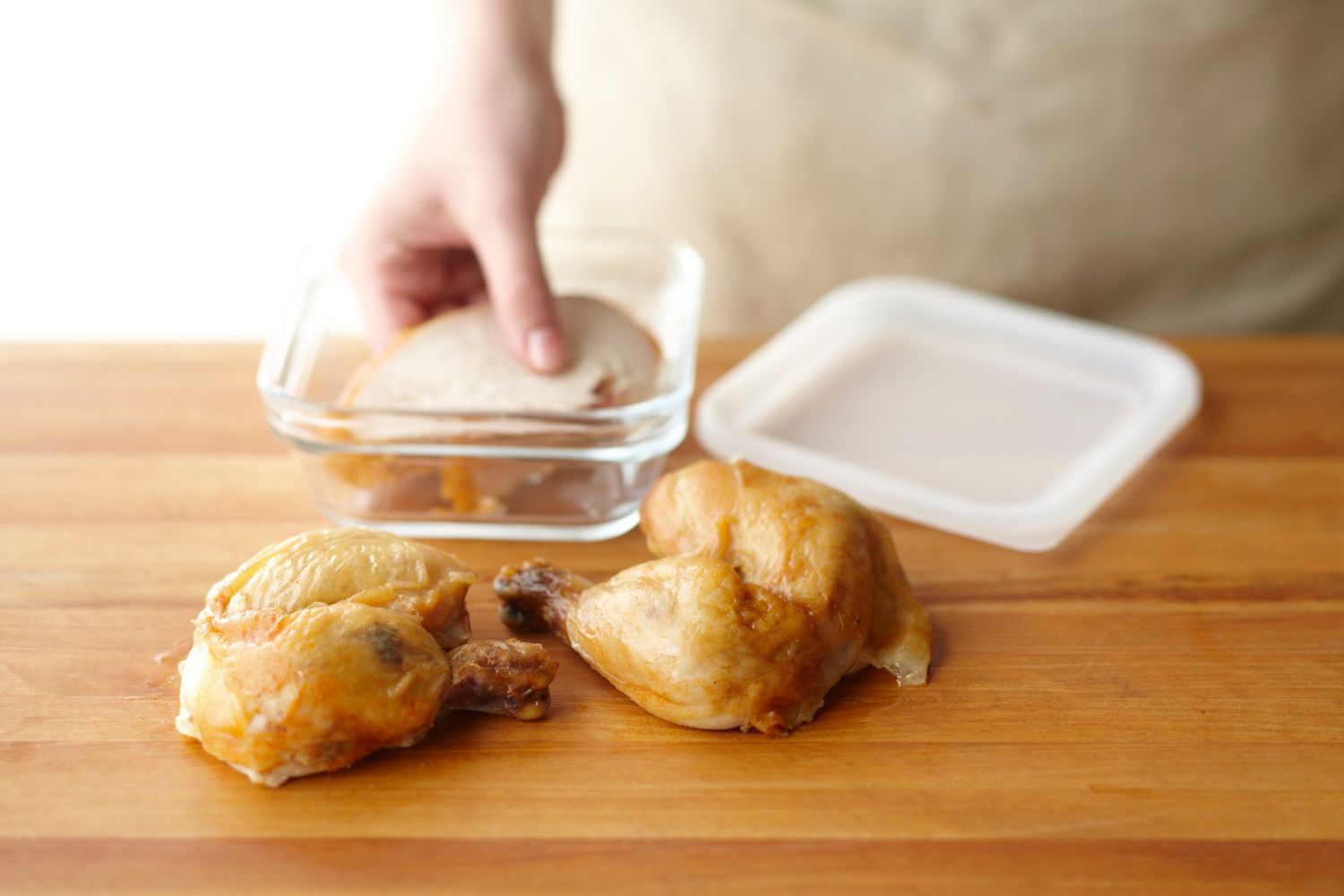

Articles
How To Store Cooked Chicken
Modified: December 7, 2023
Learn how to properly store cooked chicken with our informative articles. Keep your leftovers safe and delicious for longer periods.
(Many of the links in this article redirect to a specific reviewed product. Your purchase of these products through affiliate links helps to generate commission for Storables.com, at no extra cost. Learn more)
Introduction
Properly storing cooked chicken is essential for maintaining its freshness, flavor, and most importantly, preventing foodborne illnesses. Whether you’ve cooked a batch of chicken for a weeknight dinner or you have leftovers from a big family gathering, knowing the right storage methods can make a significant difference in both taste and safety.
In this article, we will explore the importance of properly storing cooked chicken and provide you with some useful tips and techniques to keep your chicken safe and delicious. We will cover the refrigeration and freezing methods, the best containers for storing cooked chicken, how to safely reheat it, and how to identify signs of spoiled chicken.
So, if you want to make the most out of your cooked chicken and ensure it stays fresh and tasty, read on!
Key Takeaways:
- Properly storing cooked chicken is crucial for maintaining freshness, preventing bacterial growth, and reducing the risk of foodborne illnesses. Follow key tips to ensure your chicken stays safe and delicious.
- From refrigeration to reheating, understanding the importance of proper storage and recognizing signs of spoilage is essential for safely enjoying your cooked chicken. Follow guidelines to maintain freshness and flavor.
Read more: How To Store Leftover Chicken And Dumplings
Importance of Properly Storing Cooked Chicken
Properly storing cooked chicken is crucial as it helps maintain its quality, prevents bacterial growth, and reduces the risk of foodborne illnesses. When cooked chicken is exposed to improper storage conditions, harmful bacteria like Salmonella and Campylobacter can multiply rapidly, leading to food poisoning and severe health consequences.
Here are a few reasons why it’s essential to store cooked chicken properly:
- Freshness: Storing cooked chicken correctly helps preserve its freshness. By sealing it in airtight containers or wrapping it tightly, you can maintain its flavor and texture for longer periods.
- Safety: Cooked chicken can become a breeding ground for bacteria if left at room temperature for too long. Storing it in a timely manner and at the appropriate temperature can prevent bacterial growth, keeping you and your loved ones safe from foodborne illnesses.
- Prevent Cross-Contamination: Proper storage helps prevent cross-contamination between cooked chicken and other foods in your refrigerator or freezer. By separating raw and cooked foods and using separate containers and utensils, you can reduce the risk of cross-contamination and avoid potential foodborne illnesses.
By understanding the importance of proper storage, you can ensure that your cooked chicken remains safe and enjoyable to consume. Now, let’s explore some tips and techniques for storing cooked chicken effectively.
Tips for Storing Cooked Chicken
Proper storage practices are key to maintaining the quality and safety of cooked chicken. Here are some essential tips to keep in mind when storing cooked chicken:
- Cool It Down Quickly: After cooking, allow the chicken to cool down to room temperature for about 20-30 minutes. Then, refrigerate or freeze it promptly to prevent bacteria growth.
- Separate and Store: If you have a large batch of cooked chicken, divide it into smaller portions before storing. This makes it easier to reheat only what you need and reduces the risk of contamination during reheating.
- Refrigerator Temperature: Set your refrigerator to a temperature below 40°F (4°C) to slow down bacterial growth. Use a refrigerator thermometer to monitor the temperature regularly.
- Freezer Temperature: Keep your freezer temperature at 0°F (-18°C) or below to maintain the quality of frozen cooked chicken and prevent freezer burn.
- Use Airtight Containers: Store cooked chicken in airtight containers or wrap it tightly in aluminum foil or plastic wrap. This helps maintain its moisture, prevent odors from transferring to other foods, and reduce the risk of contamination.
- Label and Date: To keep track of how long the cooked chicken has been stored, label the containers or packages with the date of storage. Most cooked chicken can be safely stored for 3-4 days in the refrigerator and 2-3 months in the freezer.
- Store Away from Raw Meat: Place cooked chicken on a separate shelf or in a different part of the refrigerator or freezer to prevent any potential cross-contamination with raw meats.
By following these tips, you can ensure that your cooked chicken stays fresh, safe, and ready to enjoy whenever you need it. Next, let’s dive into the specific storage methods for refrigeration and freezing.
Refrigeration Method
The refrigerator method is the most common and convenient way to store cooked chicken for short periods. Here’s how to do it:
- Cool Down Quickly: Allow the cooked chicken to cool down to room temperature for about 20-30 minutes.
- Divide Into Portions: If you have a large batch of cooked chicken, divide it into smaller portions using airtight containers or resealable bags.
- Seal and Store: Place the portions of cooked chicken in airtight containers or wrap them tightly in aluminum foil or plastic wrap. Ensure there are no air pockets to maintain freshness.
- Label and Date: Label the containers or bags with a date to keep track of how long the chicken has been stored.
- Store in Refrigerator: Place the containers or wrapped chicken in the refrigerator away from raw meats and other potentially hazardous food items.
Cooked chicken can be safely stored in the refrigerator for up to 3-4 days. However, for optimal taste and quality, it’s best to consume it within 2-3 days. Remember to always check for any signs of spoilage before consuming.
Now that you know how to refrigerate cooked chicken, let’s explore the freezing method as an alternative storage option.
Freezing Method
Freezing is an excellent method to store cooked chicken for an extended period. It allows you to keep the chicken fresh and safe to consume for up to several months. Follow these steps to freeze your cooked chicken:
- Cool Down Quickly: Let the cooked chicken cool down to room temperature for about 20-30 minutes.
- Divide Into Portions: Divide the cooked chicken into individual or meal-sized portions using airtight containers or freezer-safe bags.
- Wrap Properly: Wrap each portion of cooked chicken tightly in plastic wrap and then place them in the airtight containers or bags. This double layer of protection helps prevent freezer burn.
- Label and Date: Label the containers or bags with the date of freezing to keep track of the storage time.
- Freeze: Place the containers or bags in the freezer, ensuring they are placed in a flat position to maximize space and prevent any leakage.
Cooked chicken can be safely stored in the freezer for up to 2-3 months. However, for the best quality, try to consume it within 1-2 months. Properly stored chicken can still be safe to eat beyond this timeframe, but its quality may begin to deteriorate.
To thaw frozen cooked chicken, transfer it to the refrigerator and let it thaw overnight. Avoid thawing at room temperature, as this can promote bacterial growth. Once thawed, you can use the reheating methods described below to enjoy your cooked chicken.
Now that you know how to freeze cooked chicken, let’s discuss the best containers for storing it.
Store cooked chicken in an airtight container or resealable bag in the refrigerator for up to 4 days. For longer storage, freeze in a freezer-safe container for up to 3 months. Label with the date to keep track of freshness.
Read more: How To Store Chicken Stock In Freezer
Best Containers for Storing Cooked Chicken
Choosing the right containers for storing cooked chicken is essential to maintain its quality, prevent contamination, and maximize its shelf life. Here are some of the best container options:
- Airtight Containers: Airtight containers made of glass or BPA-free plastic are ideal for storing cooked chicken. They help retain moisture, prevent air exposure, and keep odors from transferring to other foods in the refrigerator or freezer.
- Resealable Freezer Bags: Freezer-safe, resealable plastic bags are a convenient option for storing cooked chicken in individual or meal-sized portions. They are space-efficient, easy to label, and allow for easy stacking in the freezer.
- Aluminum Foil or Plastic Wrap: Wrapping cooked chicken tightly in aluminum foil or plastic wrap provides a temporary storage option. However, for longer-term storage, it’s best to transfer the wrapped chicken to an airtight container or freezer bag to prevent freezer burn.
- Glass Containers with Locking Lids: Glass containers with locking lids are durable, non-toxic, and provide secure sealing. They are a great option if you prefer storing cooked chicken in a more environmentally friendly and reusable container.
When choosing containers, always ensure they are labeled as freezer-safe to prevent any damage or freezer burn. Additionally, make sure the containers or bags are clean and dry before storing cooked chicken to maintain its freshness.
Now that you know the best containers for storing cooked chicken, let’s move on to the important topic of reheating it safely.
Reheating Cooked Chicken Safely
When it comes to reheating cooked chicken, it’s crucial to do so safely to avoid any potential risks of foodborne illnesses. Follow these guidelines to ensure your reheated chicken is both delicious and safe to consume:
- Thaw Properly: If you’re reheating frozen cooked chicken, thaw it in the refrigerator overnight before reheating. This gradual thawing allows for more even heating and reduces the risk of bacterial growth.
- Reheat to an Internal Temperature of 165°F (74°C): Use a food thermometer to check that the reheated chicken reaches an internal temperature of at least 165°F (74°C) to ensure it is safe to eat. This temperature kills any potential bacteria and ensures the chicken is heated thoroughly.
- Avoid Microwave Hot Spots: When reheating in the microwave, stir or rotate the chicken halfway through the heating process to help distribute the heat evenly and eliminate any hot spots.
- Opt for Oven or Stovetop Reheating: For larger portions or whole pieces of cooked chicken, using an oven or stovetop method is preferable. These methods allow for slower, more even heating, resulting in better texture and flavor.
- Discard if Unsure: If you’re unsure about the age or safety of the cooked chicken, it’s best to discard it rather than risk foodborne illnesses. Trust your senses and look for any signs of spoilage.
Remember, reheating cooked chicken should be done just once. Repeated reheating can lead to a loss of quality and potentially increase the risk of bacterial contamination.
Following proper reheating guidelines ensures that your cooked chicken is not only safe to eat but also retains its flavor and juiciness. Now, let’s discuss how to identify signs of spoiled cooked chicken.
Signs of Spoiled Cooked Chicken
Recognizing the signs of spoiled cooked chicken is crucial to avoid foodborne illnesses. Here are some common indicators that cooked chicken may have gone bad:
- Unpleasant Odor: If the cooked chicken has a foul or off-putting smell, it is likely spoiled. Trust your sense of smell, and if in doubt, it’s safer to discard it.
- Change in Color and Texture: Look for any significant changes in the color and texture of the chicken. If it appears slimy, discolored, or has an unusual texture, it may be a sign of spoilage.
- Mold Growth: If you notice any green or black mold on the cooked chicken, it has certainly gone bad. Discard the chicken immediately, and avoid using any utensil or surface that came into contact with it to prevent cross-contamination.
- Unpleasant Taste: If the cooked chicken has an unexpectedly sour or bitter taste, it is a strong indication of spoilage. It’s best to spit it out and refrain from consuming any more.
- Excessive Gas or Bubbling: If the cooked chicken produces excessive gas or bubbling when opened or heated, it may indicate the presence of harmful bacteria. It’s safest to discard it.
When in doubt, it’s better to be cautious and discard cooked chicken that shows any signs of spoilage. Consuming spoiled chicken can lead to foodborne illnesses and unpleasant symptoms such as nausea, vomiting, diarrhea, and abdominal pain.
By being aware of these signs, you can ensure that the cooked chicken you consume remains safe and enjoyable. Now, let’s conclude our discussion on storing cooked chicken.
Conclusion
Properly storing cooked chicken is essential to maintain its freshness, flavor, and safety. Whether you choose to refrigerate or freeze your cooked chicken, following the correct storage methods can help prevent bacterial growth and reduce the risk of foodborne illnesses.
Remember these key points:
- Cool down cooked chicken quickly before storing it to prevent bacterial growth.
- Divide cooked chicken into portions for convenient storage and to minimize the risk of cross-contamination.
- Use airtight containers, resealable bags, or aluminum foil/plastic wrap to keep the chicken fresh and prevent odors from transferring.
- Label and date the containers or bags to track storage time.
- Refrigerate cooked chicken for up to 3-4 days, and freeze it for 2-3 months for optimal quality.
- Thaw frozen cooked chicken in the refrigerator before reheating.
- Reheat cooked chicken to an internal temperature of 165°F (74°C) to ensure it is safe to eat.
- Discard cooked chicken that shows signs of spoilage, such as a foul odor, unusual color or texture, mold growth, or an unpleasant taste.
By following these guidelines, you can ensure that your cooked chicken stays fresh, flavorful, and safe to consume. Always trust your senses and exercise caution when in doubt about the safety of your chicken.
Enjoy your deliciously stored and safely reheated cooked chicken!
Frequently Asked Questions about How To Store Cooked Chicken
Was this page helpful?
At Storables.com, we guarantee accurate and reliable information. Our content, validated by Expert Board Contributors, is crafted following stringent Editorial Policies. We're committed to providing you with well-researched, expert-backed insights for all your informational needs.
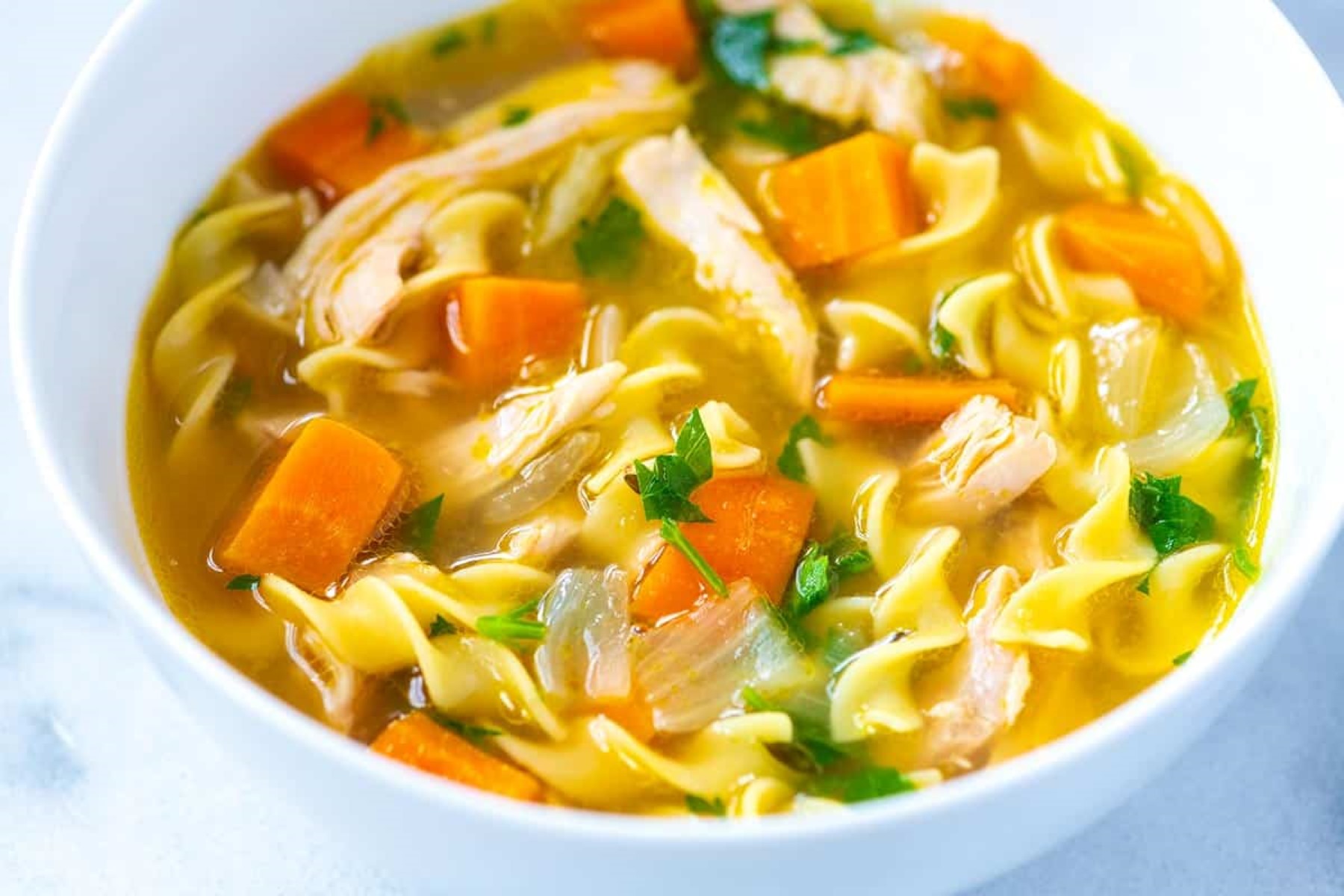
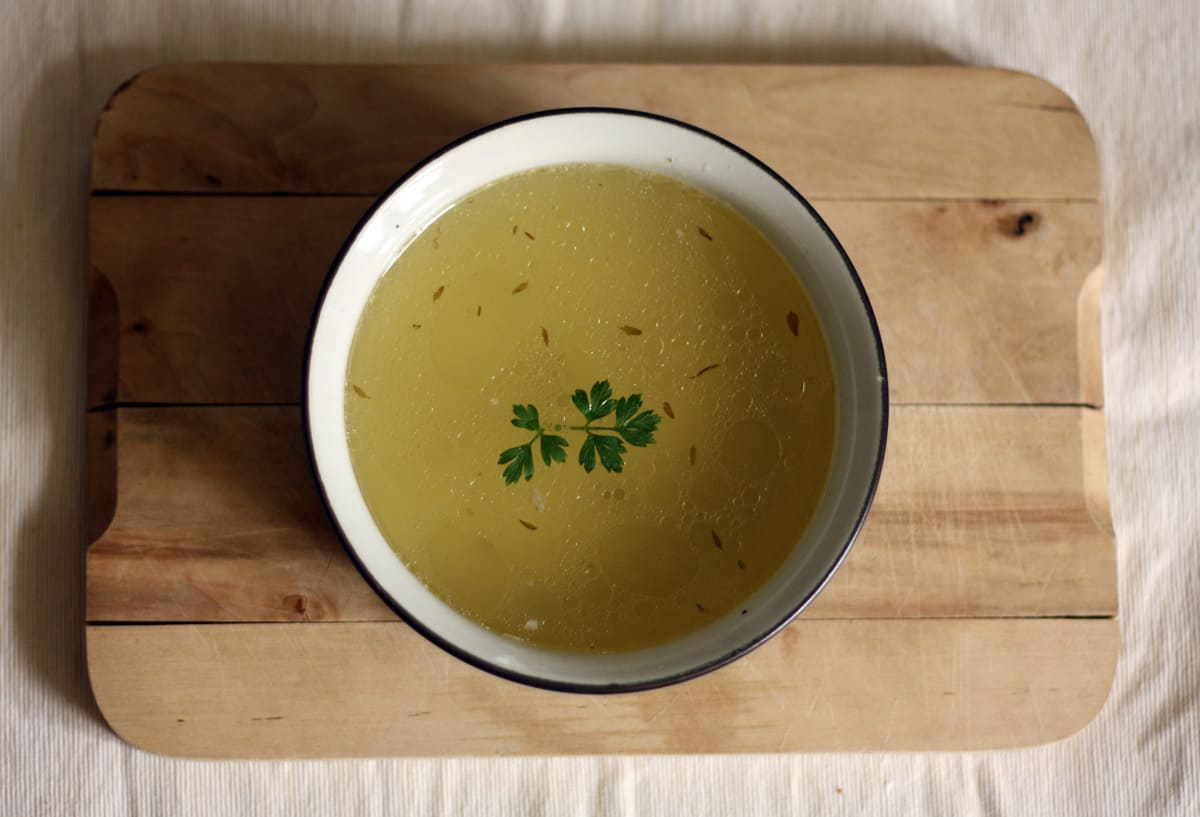
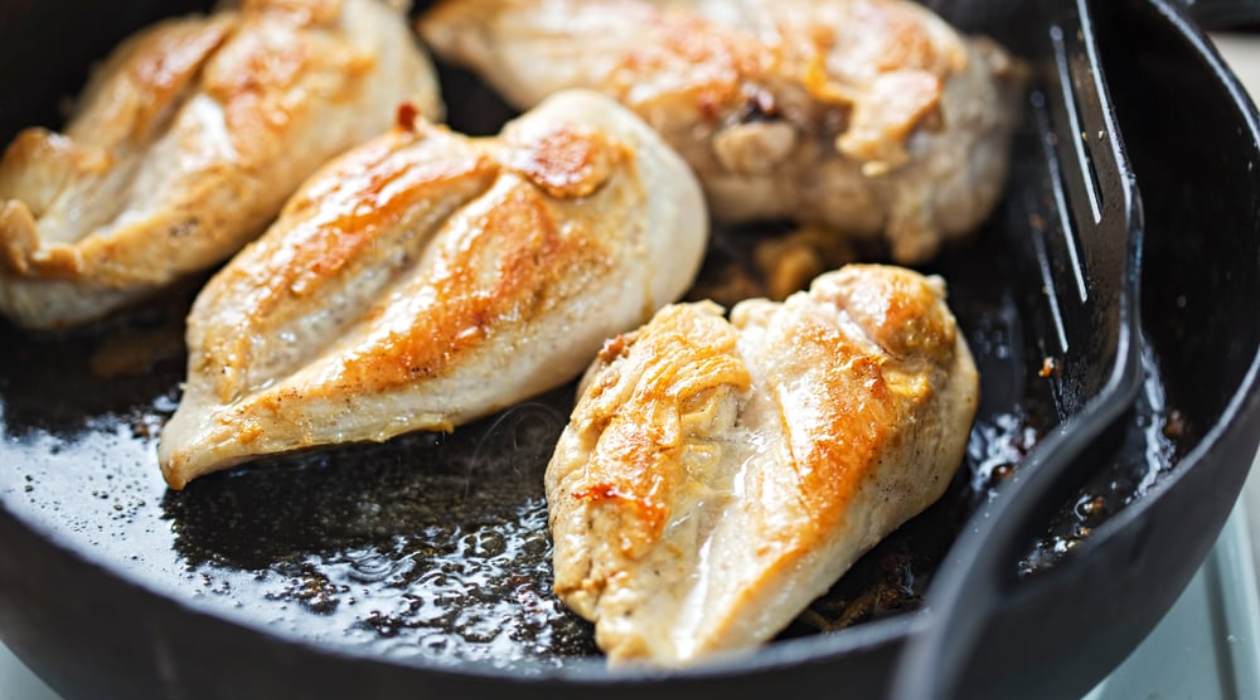
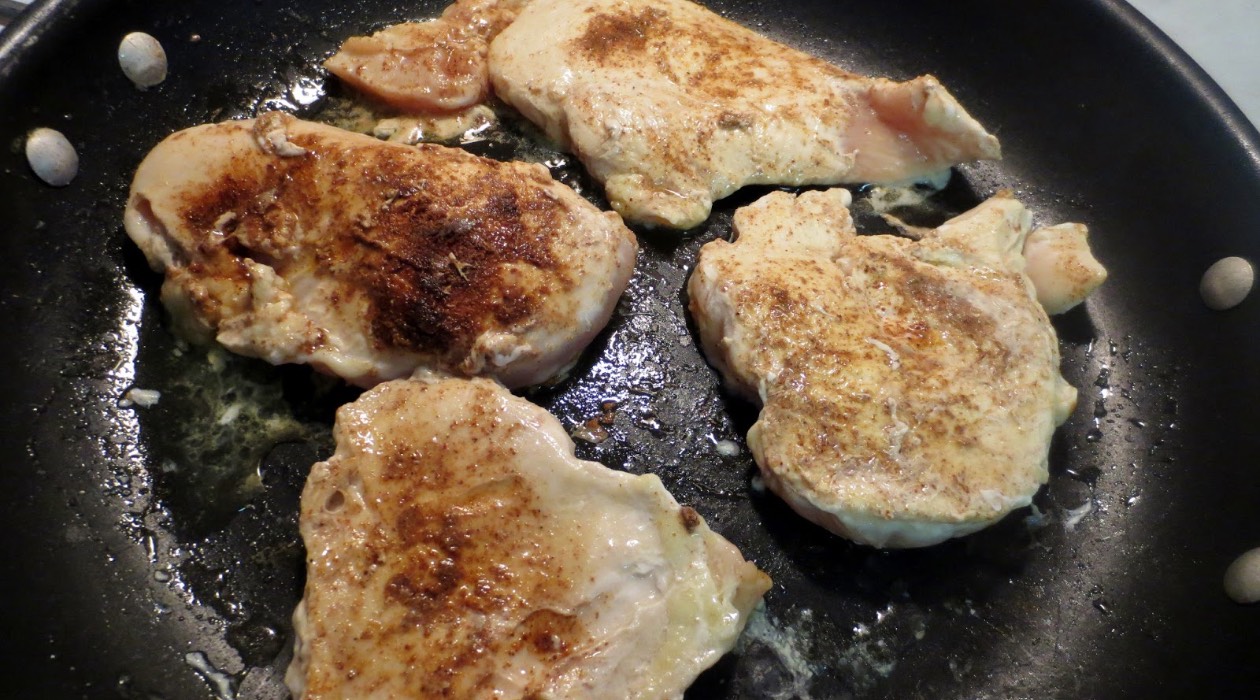
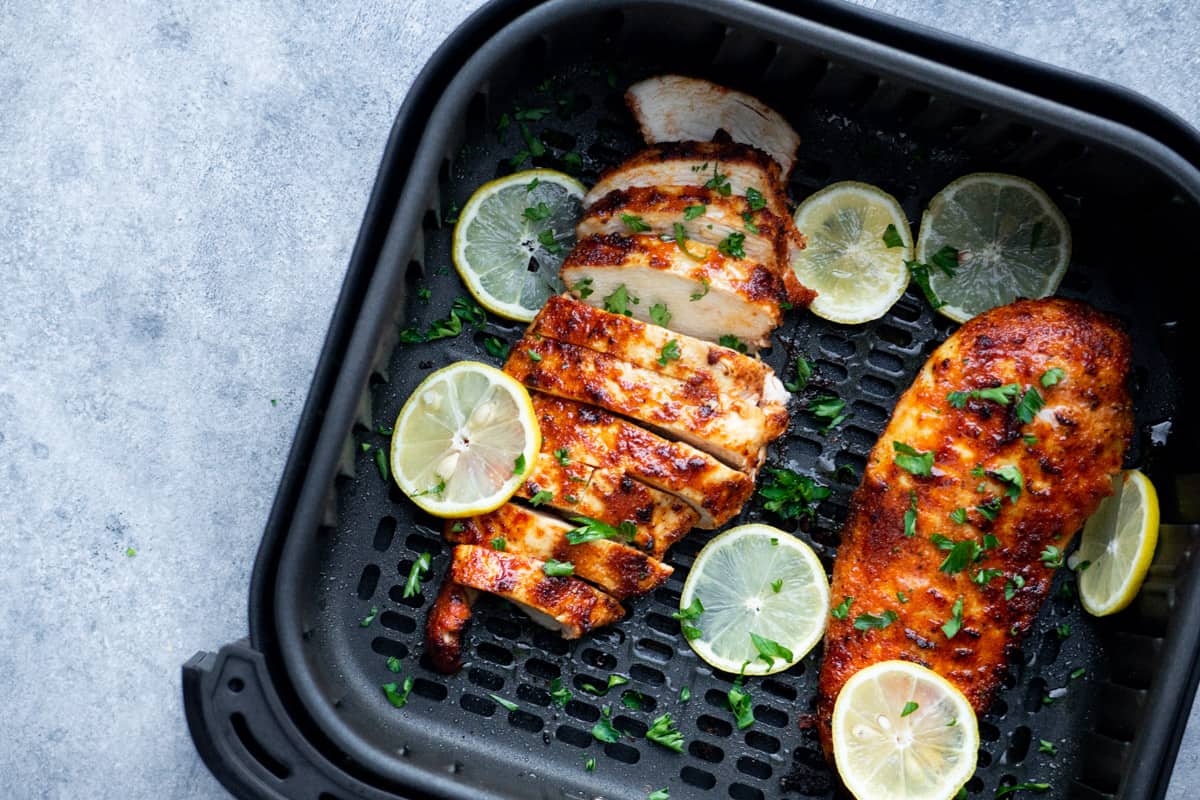
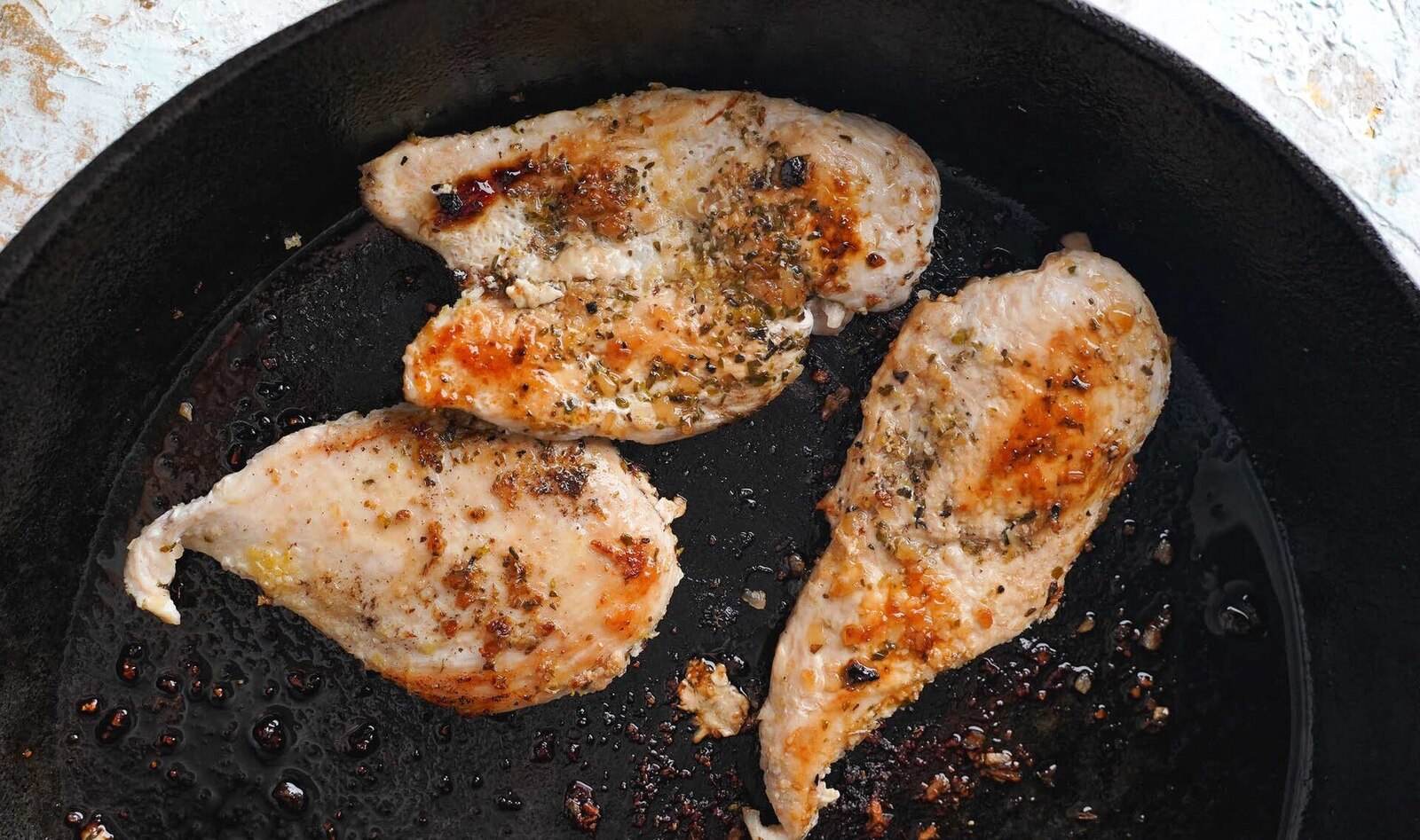
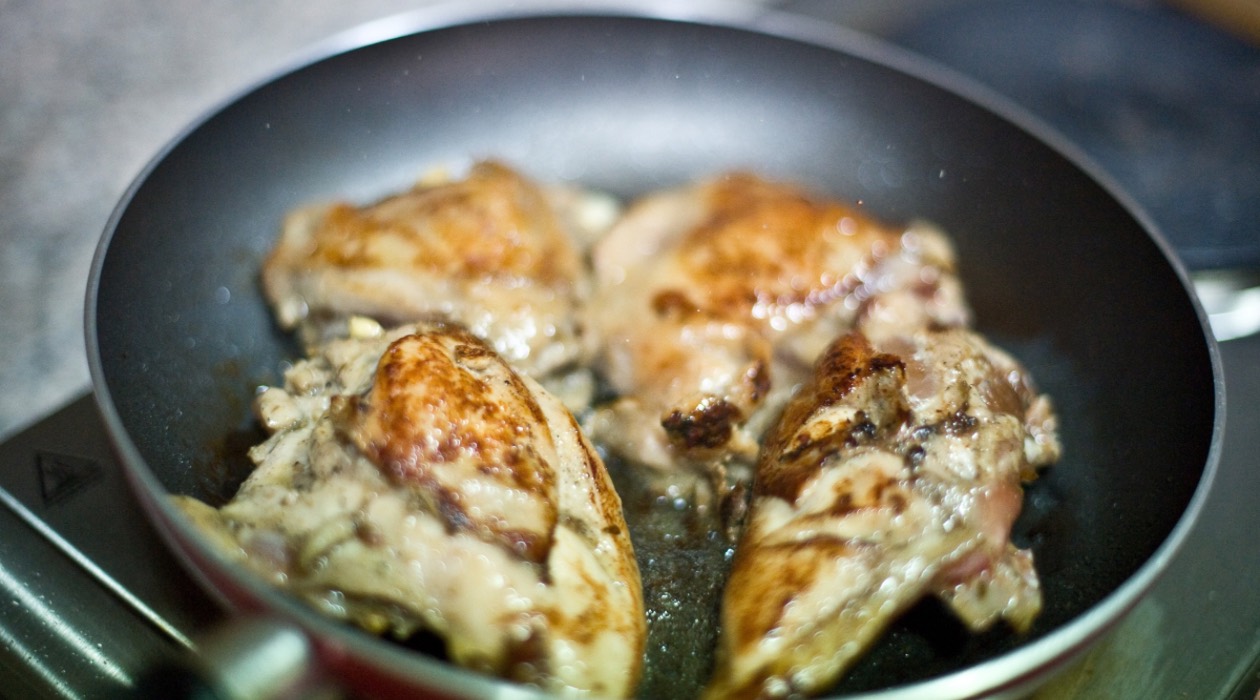
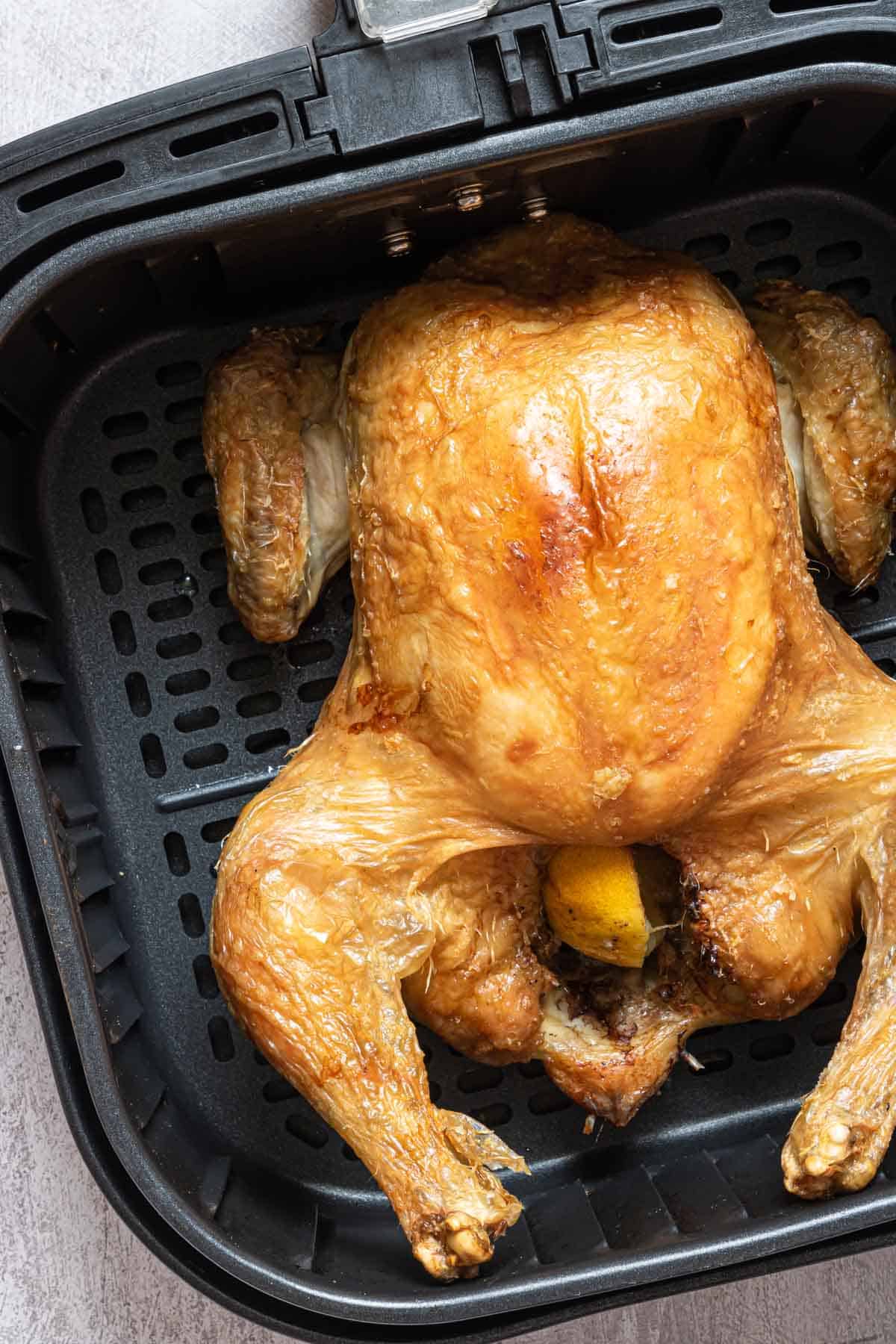
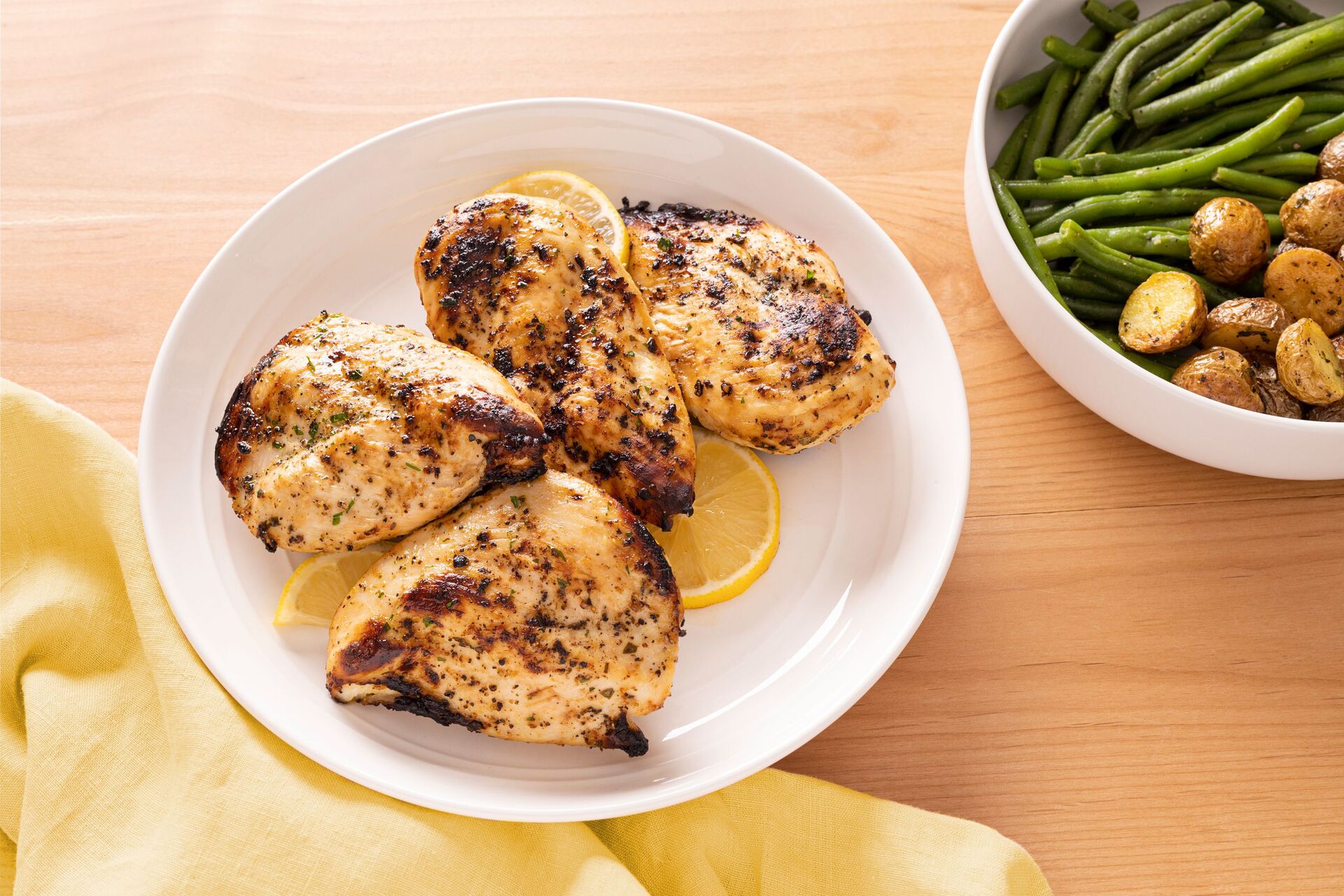
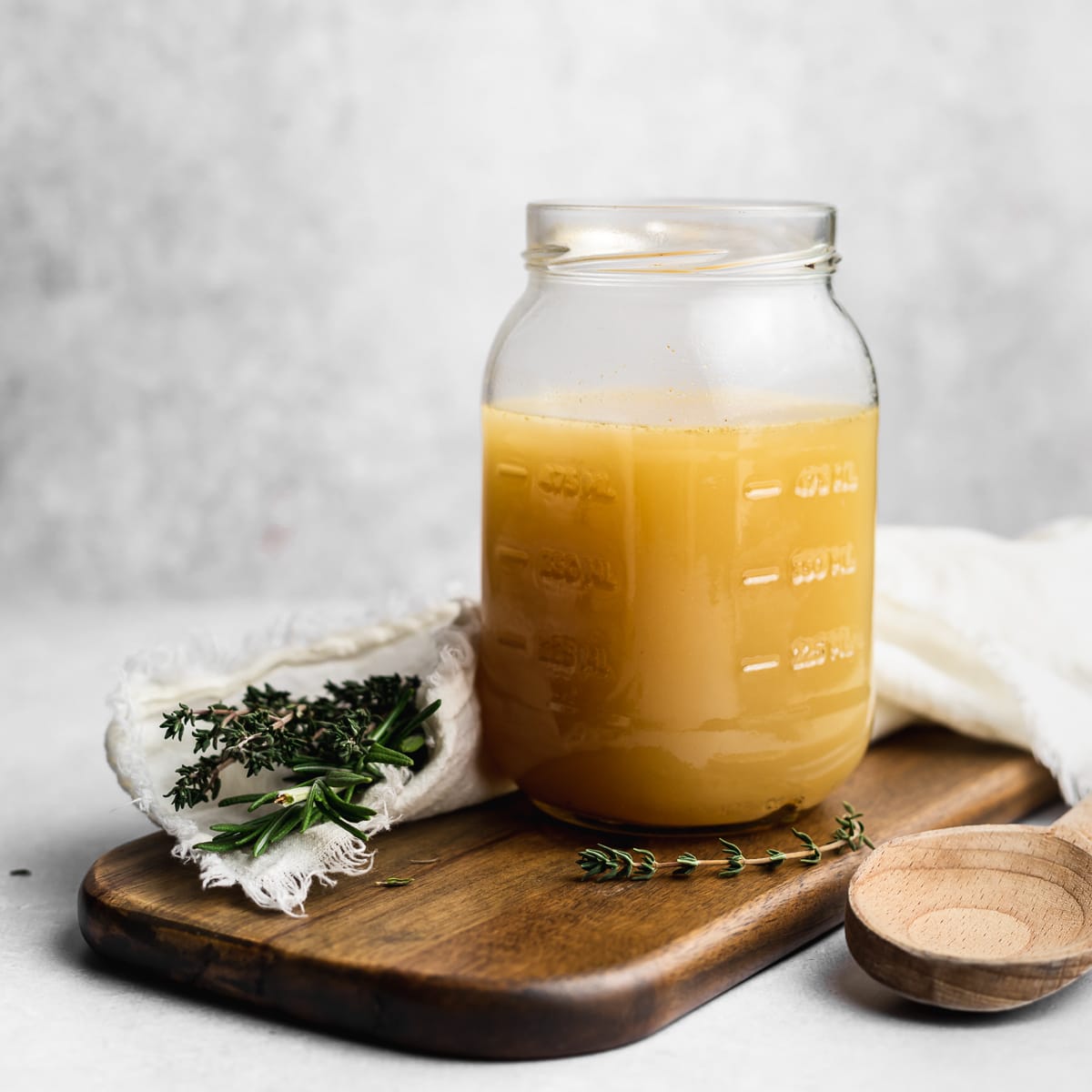
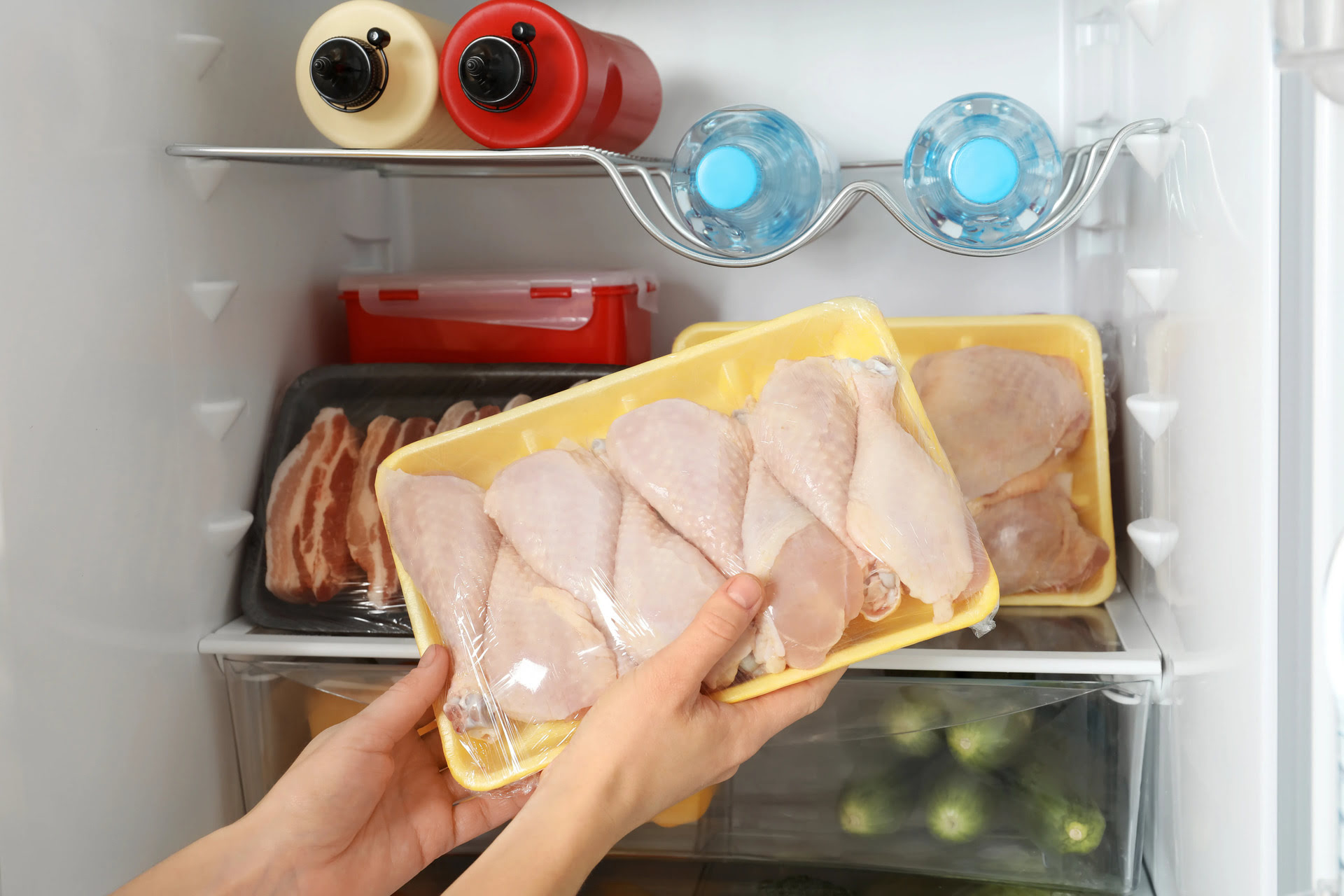
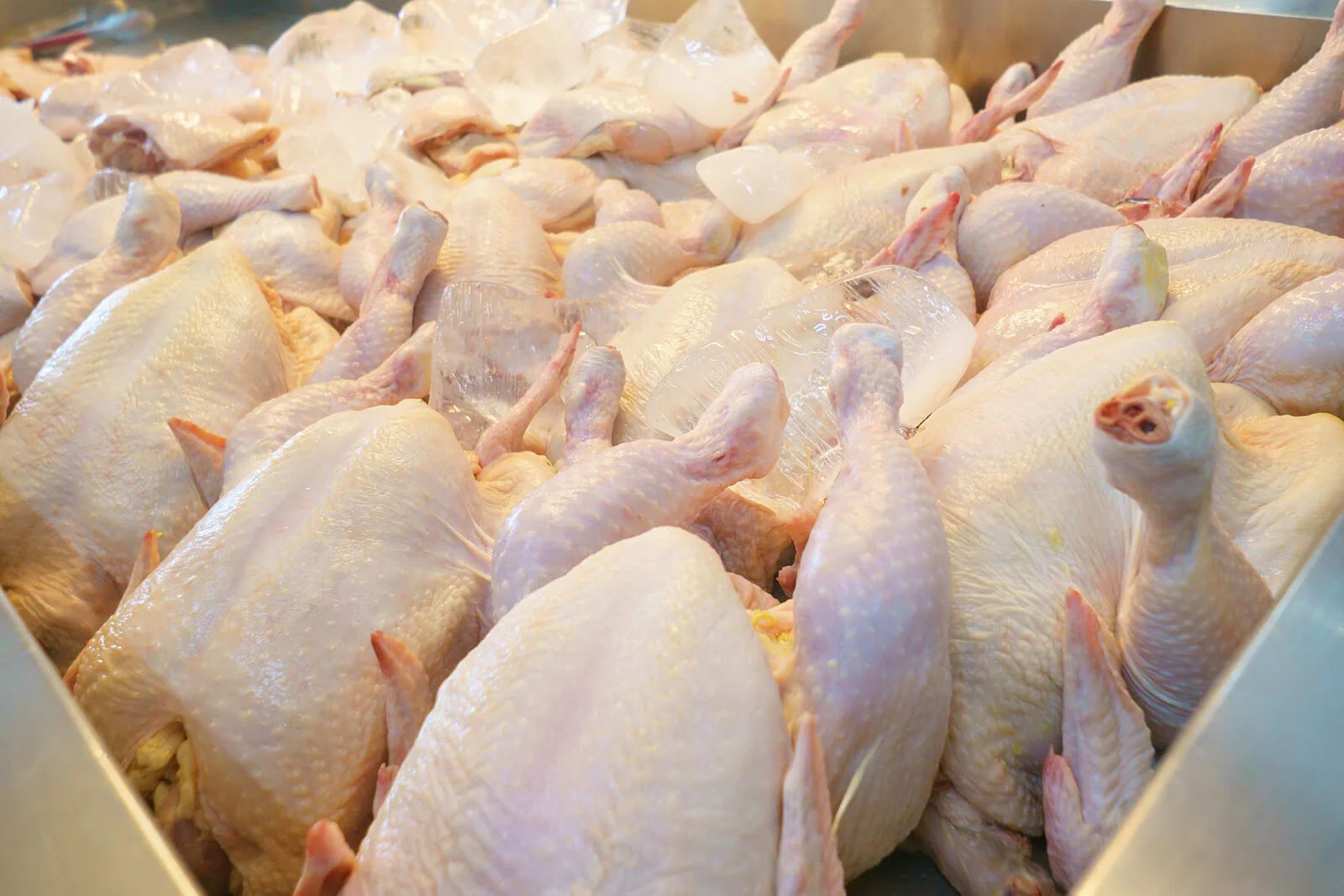
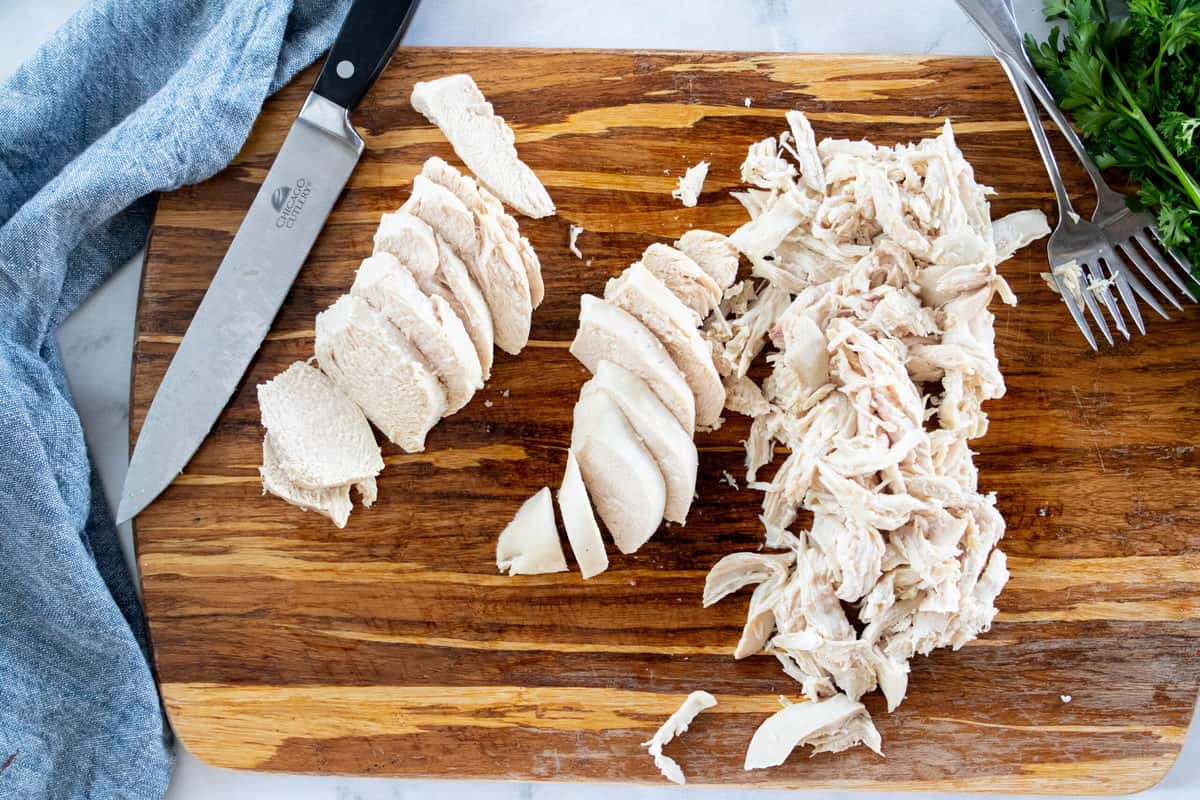
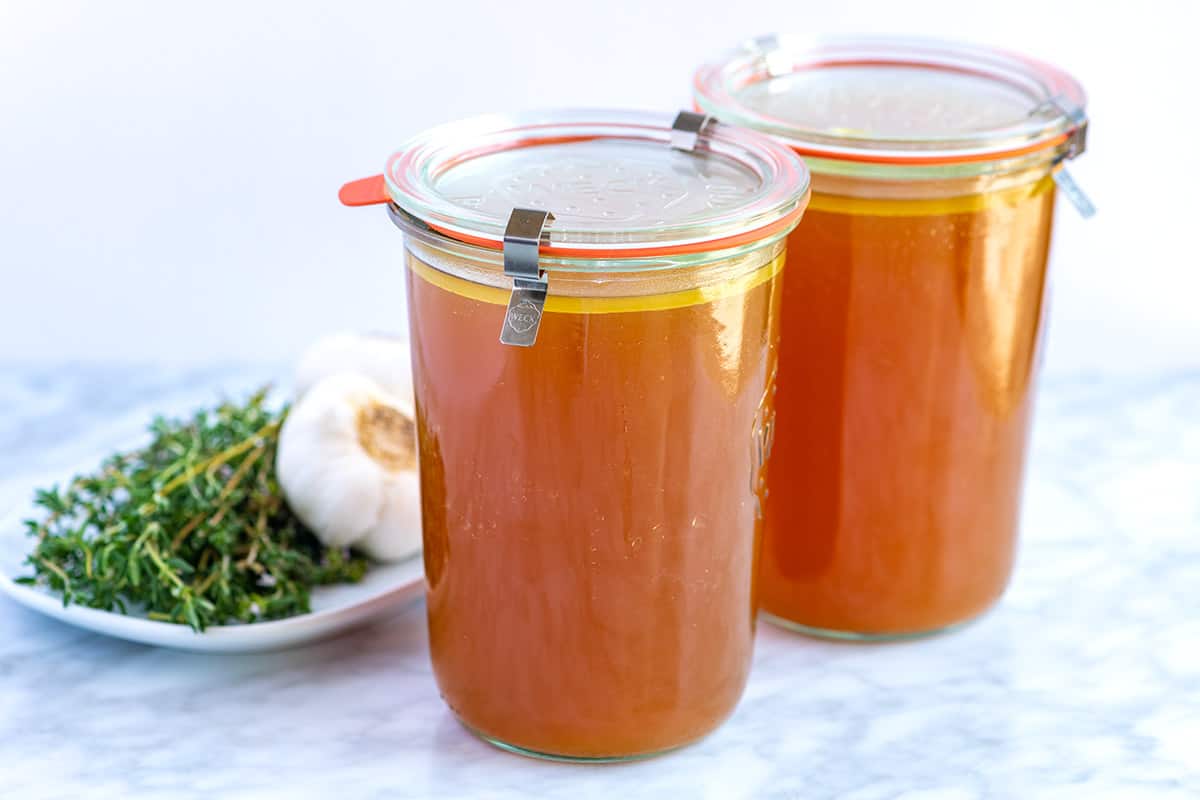

0 thoughts on “How To Store Cooked Chicken”